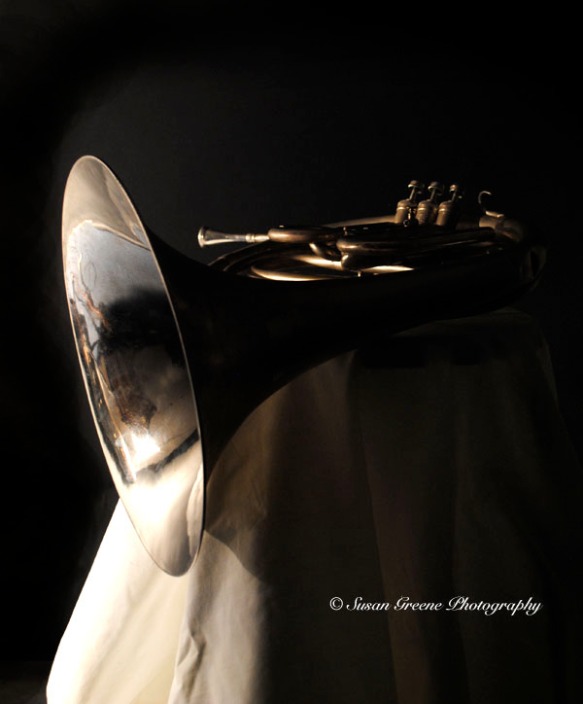Poet Mary Biddinger has one of those voices that feels like a long lost friend. She’s the author of several poetry books, including Prairie Fever and editor of Barn Owl Review. According to her website, in her spare time she likes “to photograph garbage.” She also has great ideas like starting an author interview series called The Next Big Thing. This is a chainlinking of writers who are asked to divulge details of “the next big thing” they’re working on. Sandy Marchetti, poetry editor of Minerva Rising asked me to participate. If you want to learn more about Sandy’s Next Big Thing, you can read her post here.
So here’s the project that keeps Catherine Keefe up at night…

Helen of Troy was here
What’s the working title of your book?
refrain: lost notes from helen’s songbook
Where did the idea come from?
I’ve always imagined all of poetry as one long interconnected verse, printed in a colossal book floating in the ether, bound together loosely with something like strips of dried moose hide. In that lyric, Helen of Troy, is a recurring undersong. Why haven’t we let her go?
This colossal book image came from visiting my grandfather who kept a yellowed collection of sheet music open on his piano. Over the years, the book’s binding loosened. Inevitably when my grandfather played, a few pages fell and slid under the couch or blew out the open front door on a gust of wind. As a girl I wondered who might find “Que Sera Sera” on their porch and what meaning they would derive from the discovery. Would it even be intact?
As a woman I wanted to poetically play with that lost note idea. Helen of Troy’s myth offers love, adultery and war, a far more interesting story than a girl and her grandfather singing “Give My Regards to Broadway.”
refrain’s poems are framed as if they blew out of the great lyric book by accident. They’re written in conversation with poets who have immortalized Helen, as formal poetry and also as fragment poetry collaged with art reviews, museum catalogs, grocery lists, quotes from other poets, philosophers, scientists, and titles taken from drawings by A-bomb survivors.
What genre does your book fall under?
refrain is poetry.
Which actors would you choose to play your characters in a movie rendition?
Someone unknown. Someone fierce.
What’s the one-sentence synopsis?
Helen of Troy abdicates role as poster girl for destruction in the name of beauty.
Will your book be self-published or represented by an agency?
The typical path for first book poetry publication is to win a publication prize established by small presses or literary magazines. I’ve given myself a budget to submit refrain to poetry contests.
How long did it take to write the first draft?
The first draft tumbled out in middle-of-the- night writing frenzies during the nine weeks I spent alone in a writer’s cottage in Port Townsend, WA. I was interning at Copper Canyon Press, reading some of the world’s best poetry by day and composing by night. Distant foghorns, buoy bells, and Helen’s voice drifted in through the open window.
That was in 2008 (I was the oldest intern.) Since then I’ve picked at refrain but mostly abandoned it to other projects. Helen started invading my dreams recently, so I’m spending time in a writer’s cottage in Laguna Beach to finish and begin to send it out on a regular schedule. Helen insisted I return to the sea to finish her story. Who am I to argue?
What other books would you compare to this within your genre?
refrain strives for the aesthetic restraint of One Robe, One Bowl: The Zen Poetry of Ryōkan, transl. by John Stevens. It’s in the loose narrative model of something like C.D. Wright‘s One With Others or Narrow Road to the Interior by Kimiko Hahn.
Who or what inspired you to write this book?
Helen’s story, ancient as it is, represents two persistent beliefs I want to test and explore. The first is that war is justified if there’s a perception of being wronged, and that once war is declared, all means to win are allowed.
The word “refrain” is a single phonetic tick from “reframe,” an underlying motif of the book. refrain picks up the challenge Alice Notley issued in Homer’s Art
Another service would be to write a long poem, a story poem, with a female narrator/hero. Perhaps this time she wouldn’t call herself something like Helen; perhaps instead there might be recovered some sense of what mind was like before Homer, before the world went haywire & women were denied the participation in the design & making of it. Perhaps someone might discover that original mind inside herself now, in these times. Anyone might.
The other assumption is that love is a single thing between two people, not a universal light that shines upon us all. How do we reconcile the Zen philosophy that we are all interconnected if we are proprietary about the bodies we claim as ourselves and “the one” we love?
I write to inquire. Is there such a thing as enough? This is one of the book’s fundamental questions; I play with all meanings of “refrain” including the imperative. Lastly, refrain is the story of yearning to go home, to a place where heroics and tragedies can be laid to rest. But what if the home door is bolted yet two people stand on either side of the door, hands on the lock wishing to dissolve the barrier, but not knowing how. How do you suspend blame? How do you ask for forgiveness?
What else about your book might pique the reader’s interest?
You mean beyond adultery, love and war? Well, there’s spaghetti sauce, cherry blossoms, and a Helen whose voice ranges from Yeats, to Whitman, to Euripides and CS Lewis depending on whose rendering she’s mirroring.
There’s a funny story about Helen’s voice from when I read excerpts from refrain at an Iowa Summer Writing Festival author’s reading.
I stood up and said I really wasn’t going to read something I’d written, rather I was going to read something I’d found.
Scouts Honor, I’d found bits of a journal and this journal was written by Helen of Troy. Does anyone remember who Helen was?
Hands up. Nods yes.
I then read 3 short poems from refrain. And maybe I was dressed in a long Grecian dress and maybe I added a bit of theatre technique with hand gestures – nothing too over the top, you know, just me talking with my body.
And then the reading was over and two people approached. Both of them both of them! said they very much enjoyed my reading but wondered why I hadn’t read from my own work. But, that was my work, I said. Helen of Troy didn’t have a journal, and if she did, (and was she even real?) it hasn’t been found. And if it was, it most certainly wouldn’t be written in English.
Both of them both of them! looked at me so oddly, I fled.
Then, I chuckled in my room all night and thought, well, I guess I’ve captured a voice which isn’t my own. Thank you Helen for letting me share your refrain.
~Catherine
Please check in next week when Denise Cecila Banker shares her “Next Big Thing.”
 Take care of your own.
Take care of your own.




































